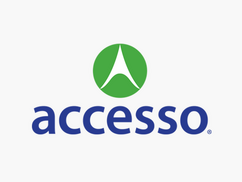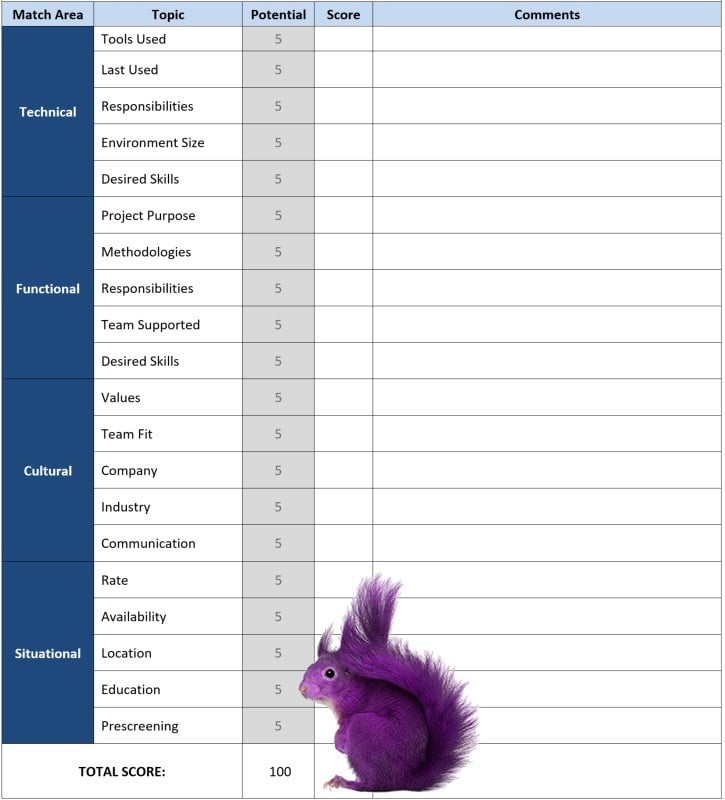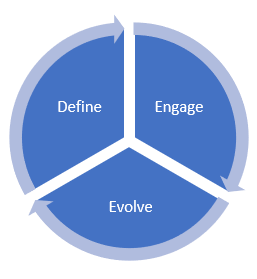accesso Blog Series: Recruiting for Your Company Culture.


“Our belief is that if you get the culture right, most of the other stuff, like great customer service, or building a great long-term brand or empowering passionate employees and customers will happen on its own.”
– Tony Hsieh, Zappos
There is an overwhelming amount of pressure these days on tech companies to create a millennial-minded workplace. A place with personality and culture. Somewhere its people can go to have breakfast, play games, hang out with their friends, and make a solid cappuccino with the perfect amount of froth. A place with good bones and thoughtful leaders who are supportive, inclusive and flexible; who aren’t afraid to shower their teams with the recognition they deserve for a job well-done. Mostly – and, importantly – they’re seeking a great place to work; to collaborate and innovate on challenging new ideas; to learn and to grow professionally and, perhaps, personally (if they’re lucky).
Since the war for talent began over 20 years ago, the hiring landscape has shifted from an employer-driven market to one in which jobseekers are increasingly selective about who they want to work for. As a result, the attraction and retention of great employees has also become harder. More often than not, especially with comparable job opportunities, culture is heavily assessed during a candidate’s decision-making process on whether or not they accept an offer.
Study upon study and innumerable surveys are conducted every year to understand what tech talent want most out of an employer. Sites like LinkedIn and Glassdoor make it easier for those on the outside to get an inside look of what it could be like to work for the tech giants of the world and the list of ideals grows longer. While its rank of importance may vary year over year, company culture has always remained on the spectrum. It has become even more important in recent years as online social connectedness is increasingly embedded in our lives, allowing the sharing of personal and professional information to happen almost instantaneously. To adjust, accesso has continually evolved its culture – something which happened naturally due to our rapid growth, but also out of the necessity to meet the talent demands of our ever-changing technology industry which dictates how we conduct business and deliver solutions.
Quantifying “Perfect”
In my former life as an agency recruiter, I had the advantage of working with multiple clients in different industry verticals that were all looking for a variation of the same skill sets. Each client had at least one purple squirrel they sought, the hard-to-find skill set that was a perfect match for their needs. An engineer in the DoD sector with a government security clearance did not fit the requirements for hospitality clients. Those candidates in turn could not fulfill the same technical roles in education. 20+ years of experience working with the school system as a Programmer Analyst meant nothing when the hiring manager wanted a Web Developer with eCommerce experience. There were days I would talk to 50+ candidates who were all smart, ambitious, driven, passionate, funny and were a fit somewhere… but, not where my client needed them, which was on their team. Those days, I went home to my own family feeling like I disappointed all of these good people who truly believed that someone was going to help them during The Great Recession.
I needed to self-reflect. Why were all developers not created equally? Beyond the technical, what questions was I asking to determine “fit”? Why was I asking those questions? What was I trying to get out of their answers and how important was it to filling the role? If I believed in someone who wasn’t a 100% match for the role, how could I persuade my client to take a chance? How could I make them listen?

“Without data, you’re just another person with an opinion.”
– Dr. W. Edward Demings
I needed facts. I needed to try and quantify a whole lot of intangibles. I created a scorecard and started breaking down the things my clients were seeking in their “perfect” candidate into four match categories: Technical, Functional, Cultural, Situational.
You see, purple squirrels do exist, although they may be more of a violet or lavender color depending on who you ask. “Perfect,” in this case, is in the eye of the interviewer and if there are multiple, the perception of “perfect” will be skewed. By arming myself with data to either support or discourage the hiring of a candidate, I became more confident in my abilities to understand what my hiring managers needed and more honest with myself, as well as with the candidate, about his or her match to a role. I began to provide a more consultative experience for both and in turn built trust and improved my efficiency.

Back to Culture
As I started going through this exercise, I began to realize that the cultural piece had a huge impact on whether or not a client hired someone. Hiring managers could have five candidates who were all technically capable, fulfilled all the right functional requirements and checked each box on the situational aspects. However, if a candidate was not a good culture fit or if their values and ideals didn’t match the team and/or company, the client would not hire them. Managers were more willing to be flexible on the requirement of specific technologies or experience than they were on the requirement that the person be a good match to the organization.
So, where do you start? How do you attract, hire and retain the best talent for your company culture?

Define your culture.
A company’s culture is a blend of its vision, mission and values; its people; the products and services as well as the technologies and processes that make up how it operates; and, its clients.
Once company culture has been defined, talent attraction can begin. This is probably one of the biggest hurdles for any growing company but is also, arguably, the most important step in hiring the right team for your company. Recruitment marketing plays a big part in getting your employer brand out to the general candidate population and if the marketing is done well and the culture is portrayed honestly, the right purple squirrels for your company will come.
Ask yourself: What does culture mean to you? What is the personality you want for your company? What does your company stand for? How do you want to be viewed by your peers and competitors, your team, your customers?
Engage your culture.
Your company culture is shown from the minute you communicate with a candidate. That email you send or job ad that you post sets the tone for how your company’s culture is perceived by future employees. As you move through the hiring process, that perception is further interpreted therefore transparency is important. Train your interviewers and hiring managers on how to engage with candidates to allow for meaningful discussions – it’s not an interrogation.
As you interview, assessing technical, functional and situational alignment is relatively easy. Candidates either do or don’t have experience working with a specific tool (technical) in a specific way (functional) and have personal life situations that may or may not meet the requirements for the role you’re trying to fill (i.e. they need to work remotely, you need someone onsite).
The cultural piece is not as tangible and can be a bit more difficult to assess. But, it can be done by asking questions… lots and lots of questions. My favorite method is the Five Ws and How. It’s important to never assume you know something about a candidate that they did not disclose to you. Learn about their goals and values, teams they’ve worked on and supervisors they loved. Ask about their favorite project and company; ask why. Then, STOP and listen to how they’re answering it. Is there excitement or passion or pride in their descriptions? Hopefully, there’s all three and in the areas you need them to be.
Remember, as you’re interviewing for the most “perfect” match possible to your organization, candidates are interviewing you just the same. I’ve learned that the scorecard goes both ways and that if I’m going to ask a question, I better be prepared to speak to how it relates to the position I’m trying to fill. At accesso, we encourage our candidates to ask questions throughout the process and really evaluate their potential work environment and team when interviewing in-person. They meet with all levels, from peers they’ll be working with and their direct manager to senior and executive leadership. There is ample opportunity along the way for them to gauge our company culture and whether we’re a good match for them.
Evolve your culture.
Now that you’ve hired your purple squirrels, there’s not much else to do when it comes to company culture, right? FALSE. As products and services change to adapt to societal influences, so should your company culture. This not only helps with the attraction and hiring of new talent, but is also extremely important in the retention of the stellar talent you’ve already hired.
The interviews shouldn’t stop now that the candidate has turned into an employee. Continue to connect with your team regularly to sincerely understand and support what drives them. Follow-up and action taken from feedback gathered during one-on-one sessions, team meetings, employee engagement surveys or purely through observation can help contribute to your company’s evolving culture by guiding leaders to making more informed decisions pertaining to the well-being of their people, products and services. Successful culture change cannot be a mandate, signed, sealed and delivered. It is a collaborative effort, often unintentional, and “it lives in the collective hearts and habits of people and their shared perception” as Harvard Business Review authors Bryan Walker and Sarah A. Soule recently wrote in a 2017 article on changing company culture.
Defining, engaging and evolving your company’s culture is a continuous cyclical process. In your pursuit of becoming an ideal employer for talented tech professionals, you must reflect on your own company culture. You must realize your successes and shortcomings and not be afraid to meet areas of opportunity head-on. Millennial-minded or not, your future employees will appreciate it.
Our vision is to connect visitors and venues with purpose, passion and partnership.
Our mission is to be the premier technology partner within the leisure, entertainment and cultural markets by providing innovative and secure commerce solutions backed by inspired people with a relentless commitment to service.
To learn more about our company culture, click here.

Trinh Force - Recruiting Manager
Trinh is the Recruiting Manager for accesso and has been with the company since 2015. During this time, she has been responsible for the strategy and execution of all recruiting-related efforts. In her spare time, she likes to hang out with her 3 boys (husband included) named What, Spare and Time.